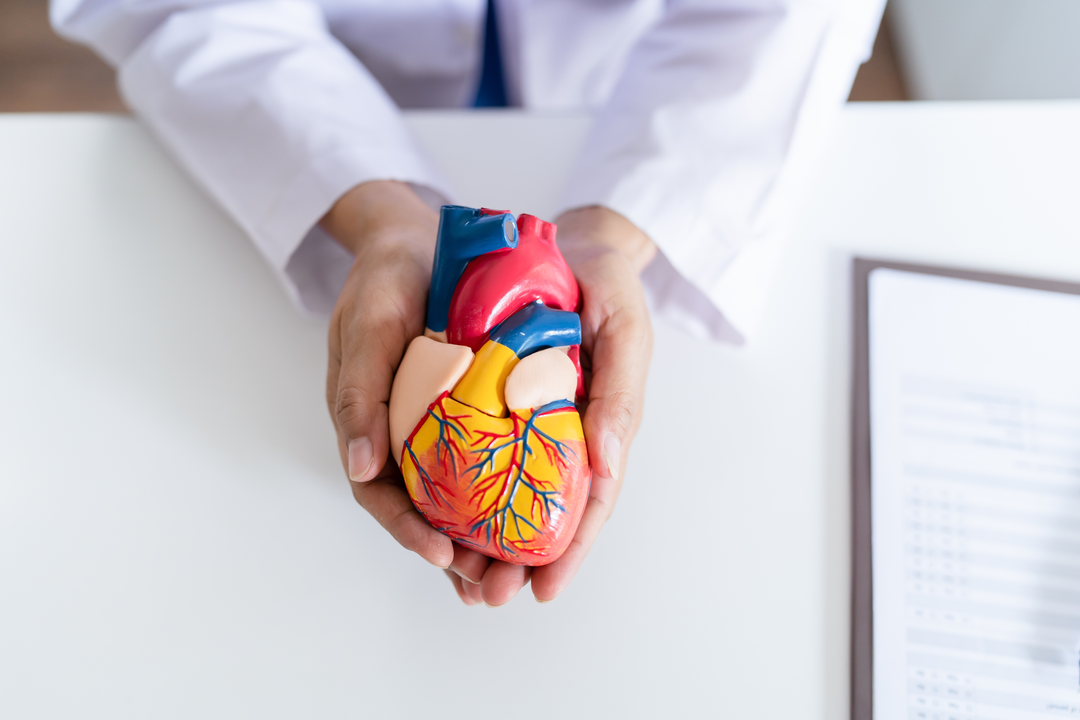Abnehmen mit Schilddrüsenunterfunktion – Es ist keine Wissenschaft
An underactive thyroid, also known as hypothyroidism, can impact a person's weight. The thyroid plays a crucial role in the body's metabolism, and if it doesn't produce enough hormones, various changes can occur, influencing weight.
The Function of the Thyroid
The thyroid is a small gland in the neck responsible for producing thyroid hormones. These hormones regulate a variety of vital functions in the body, including controlling metabolism, regulating body temperature, influencing heart rate and blood pressure, supporting growth and development, maintaining energy balance, and controlling calcium metabolism.
Thyroxine (T4) and triiodothyronine (T3) are the main hormones produced by the thyroid. T4 is converted into T3 in the body, activating cells for energy consumption. If the thyroid doesn't produce enough T4, it can lead to a deficiency of active T3, slowing down metabolism.
Understanding Hypothyroidism: Effects on Body Weight

One of the most common effects of an underactive thyroid is unintentional weight gain. This occurs due to a slowed metabolic rate, meaning the body burns fewer calories. This slowed metabolism can result in the body burning fewer calories, ultimately leading to weight gain. An underactive thyroid can be detected from thyroid values, typically through a blood test.
Additionally, hypothyroidism can cause water retention, making the affected person feel bloated and heavier without gaining more fat mass. An underactive thyroid can also impact the actual fat metabolism, leading to increased cholesterol levels and an elevated risk of cardiovascular diseases.
Diet in the Case of Hypothyroidism

– Picture von KamranAydinov Freepik
Nutrition plays a crucial role in managing an underactive thyroid. However, there is no specific "hypothyroidism diet." Instead, a balanced diet is key to providing the body with necessary nutrients and controlling potential weight gain:
- Iodine: Iodine is an essential trace element needed for the production of thyroid hormones. Foods such as seaweed, seafood, and dairy products are rich in iodine.
- Selenium: Selenium is another crucial trace element vital for thyroid function. For example, selenium is found in nuts, seeds, and poultry.
- Fiber: Fiber-rich foods like whole grains and vegetables can boost metabolism and increase satiety. Additionally, fiber slows down digestion, helping to stabilize blood sugar levels.
- Adequate Proteins: Proteins are essential for maintaining muscle mass and supporting metabolism. Lean meats, fish, legumes, and nuts are good sources of protein.
- Avoiding Goitrogens: Goitrogens are substances in some foods that can affect thyroid function. These include soy, cabbage, broccoli, and beets. It is advisable to consume these foods in moderation and heat them before cooking to reduce their goitrogenic effects.
- Regular Meals: Regular meals can help maintain stable blood sugar levels and prevent cravings.
- Balanced Diet: Leptin is a hormone that regulates satiety. In hypothyroidism, there may be disrupted leptin production, leading to cravings. A balanced diet and regular exercise can help regulate leptin levels.
- Supplements: Considering certain supplements may be beneficial. However, this should always be discussed with a doctor! Some supplements, such as omega-3 fatty acids and vitamin D, can contribute to supporting thyroid function.
- Avoiding Crash Diets: Crash diets or extremely low-calorie diets are not recommended for people with hypothyroidism. These diets can further slow down metabolism and lead to muscle loss.
- Exercise and Physical Activity: Even more important when losing weight with hypothyroidism.
Exercise and Physical Activity: Even more crucial when losing weight with hypothyroidism

– Picture Freepik
Exercise and sports can make a valuable contribution to weight loss and overall health with hypothyroidism. Although hypothyroidism can slow down metabolism, there are various reasons why exercise is especially important during this time:
- Increased Caloric Expenditure: Physical activity burns more calories, helping to balance the calorie imbalance often associated with weight gain in hypothyroidism.
- Metabolism Boost: Regular exercise can boost metabolism, even if it is impaired by hypothyroidism. This can help burn excess fat and limit weight gain.
- Muscle Maintenance: Exercise aids not only in weight loss but also in maintaining muscle mass. Muscles are metabolically active and contribute to increasing the body's basal metabolic rate, enhancing calorie consumption at rest.
- Improvement of Well-being: Exercise can reduce mood swings and fatigue, common symptoms of hypothyroidism. Enhanced well-being can promote motivation for weight control.
Maintaining Motivation and Stress Management Stress can negatively impact thyroid function. Relaxation techniques such as yoga, meditation, and breathing exercises can help reduce stress and support metabolism. Perseverance and motivation are crucial when aiming to lose weight with hypothyroidism:
- Set Realistic Goals: Weight loss goals should be divided into smaller, achievable milestones. This can help track progress and stay motivated.
- Document Progress: Keeping a journal or using an app can help track nutrition, exercise, and weight loss. A clear overview can be crucial because the journey is the goal!
- Set Rewards: Rewards send the right signals to the body and help keep the goal in sight. These can be small things like a wellness day or a new book.
Medication and Medical Care
Not everyone with hypothyroidism necessarily gains weight. The effects on weight can vary from person to person. Weight gain with hypothyroidism is often moderate, and appropriate treatment of hypothyroidism can help control it.
It is important to treat hypothyroidism in consultation with a doctor. Medications containing thyroid hormones may be prescribed to balance hormone levels and improve metabolism.
Other important factors when losing weight with hypothyroidism

The Significance of Sleep
Sleep is often an underestimated factor in weight loss, and it is particularly important to get an adequate amount of sleep, even with hypothyroidism. Lack of sleep can slow down metabolism and increase cravings for unhealthy foods.
Support from Community
Sharing experiences and mutual motivation can help stay on course. Therefore, it is sometimes advisable to involve friends and family or engage in group discussions.
The Importance of Water
Drinking enough water is crucial for metabolism and weight loss. Water helps remove toxins from the body and supports the digestive process. Therefore, it is essential to ensure an adequate daily intake of water to stay optimally hydrated.
A Word of Encouragement
Losing weight with hypothyroidism requires special efforts, but it is certainly achievable. It is always important to listen to the body, be patient, and apply the right strategies. Remember that health should always be the top priority. In case of significant changes in diet or lifestyle, consulting a doctor is recommended.
Sources:

















